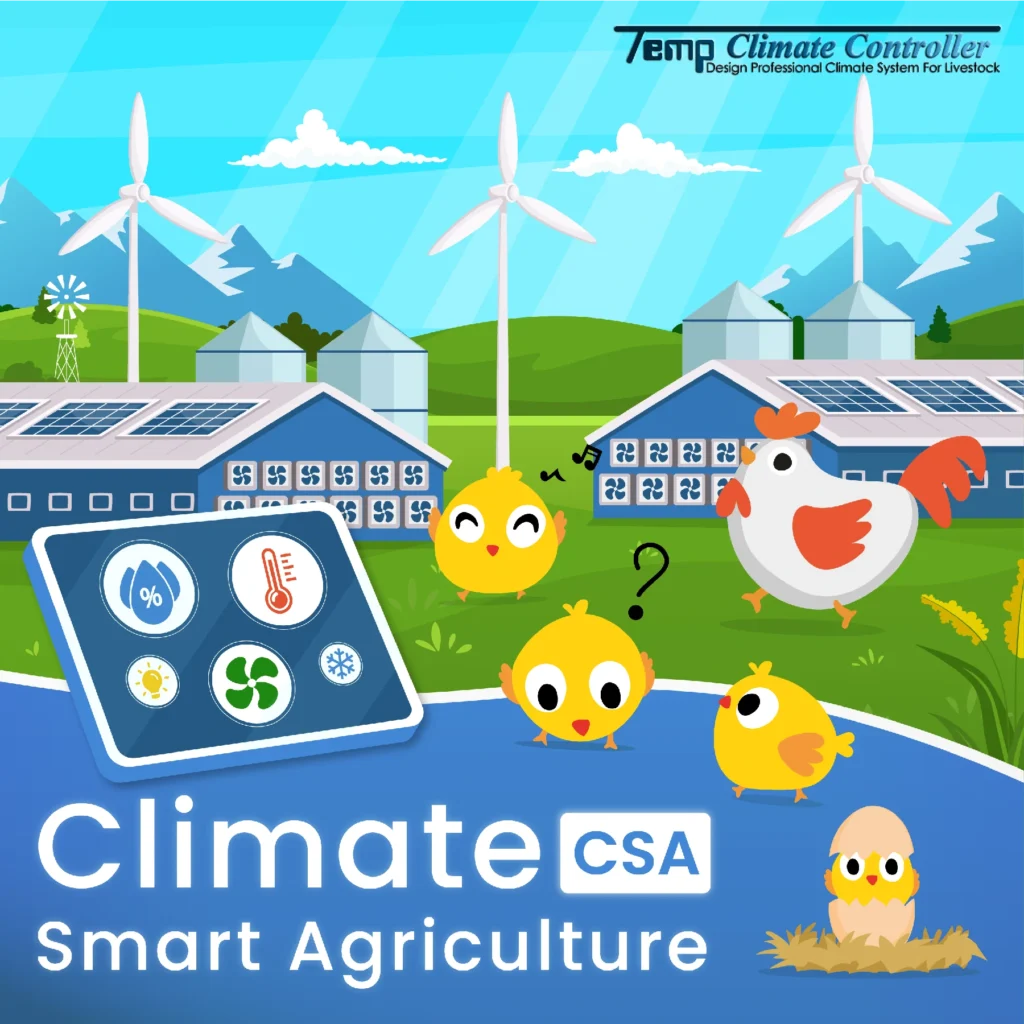Climate-Smart Agriculture (CSA) Smart Farming
Climate change has become one of the greatest challenges facing global agriculture.
Rising temperatures, erratic rainfall, prolonged droughts, and increasing risks of pests and crop diseases directly affect yields, food quality, and food security.
To address these challenges, the concept of Climate-Smart Agriculture (CSA) was developed. CSA provides a framework to help farmers adapt, mitigate, and produce sustainably.
It is built upon three core pillars
1. Increased Productivity
Applying technologies and innovations to boost yields per unit area, reduce losses, and increase farmers’ incomes.
2. Adaptation
Designing resilient production systems, such as using drought- and heat-tolerant crop and livestock breeds, alongside efficient water management practices.
3. Mitigation
Reducing greenhouse gas emissions by minimizing resource wastage, adopting low-carbon farming practices, and developing technologies that lower the farm’s carbon footprint.
Technologies and Innovations Supporting CSA
Sensors and IoT Monitor soil moisture, temperature, and air quality in real-time for data-driven decision-making.
Smart Energy Management Systems: Reduce energy waste in livestock housing and crop production systems.
Big Data and AI: Analyze climate and environmental data to predict risks and recommend management strategies.
Climate Control Systems: Essential tools to maintain stable production conditions despite external weather fluctuations.
CSA in Closed-House Livestock Farming
In livestock farming particularly closed-house poultry production climate control within housing is critical. If temperature and humidity levels are suboptimal, they negatively impact poultry health, growth performance, and Feed Conversion Ratio (FCR).
The integration of the Temp Climate Controller is a key CSA solution. It enables:
Precise control of temperature, humidity, and airflow within livestock housing
Reduced energy consumption and improved ventilation efficiency
Adaptation to unpredictable climate conditions without compromising productivity
Lower long-term production costs while supporting environmentally friendly practices
Conclusion
Climate-Smart Agriculture is not just a theoretical concept but a practical approach that requires technology, innovation, and automation to make agriculture more resilient and sustainable. In Thailand, adopting systems like the Temp Climate Controller represents a concrete step toward climate-smart farming, empowering farmers to adapt, mitigate, and thrive in an unpredictable climate future.
#SmartFarming #TempClimateController #Farm #Temp #SustainableAgriculture #ClimateSmartAgriculture
Climate-Smart Agriculture (CSA) Smart Farming
Climate change has become one of the greatest challenges facing global agriculture.
Rising temperatures, erratic rainfall, prolonged droughts, and increasing risks of pests and crop diseases directly affect yields, food quality, and food security.
To address these challenges, the concept of Climate-Smart Agriculture (CSA) was developed. CSA provides a framework to help farmers adapt, mitigate, and produce sustainably.
It is built upon three core pillars
1. Increased Productivity
Applying technologies and innovations to boost yields per unit area, reduce losses, and increase farmers’ incomes.
2. Adaptation
Designing resilient production systems, such as using drought- and heat-tolerant crop and livestock breeds, alongside efficient water management practices.
3. Mitigation
Reducing greenhouse gas emissions by minimizing resource wastage, adopting low-carbon farming practices, and developing technologies that lower the farm’s carbon footprint.
Technologies and Innovations Supporting CSA
Sensors and IoT Monitor soil moisture, temperature, and air quality in real-time for data-driven decision-making.
Smart Energy Management Systems: Reduce energy waste in livestock housing and crop production systems.
Big Data and AI: Analyze climate and environmental data to predict risks and recommend management strategies.
Climate Control Systems: Essential tools to maintain stable production conditions despite external weather fluctuations.
CSA in Closed-House Livestock Farming
In livestock farming particularly closed-house poultry production climate control within housing is critical. If temperature and humidity levels are suboptimal, they negatively impact poultry health, growth performance, and Feed Conversion Ratio (FCR).
The integration of the Temp Climate Controller is a key CSA solution. It enables:
Precise control of temperature, humidity, and airflow within livestock housing
Reduced energy consumption and improved ventilation efficiency
Adaptation to unpredictable climate conditions without compromising productivity
Lower long-term production costs while supporting environmentally friendly practices
Conclusion
Climate-Smart Agriculture is not just a theoretical concept but a practical approach that requires technology, innovation, and automation to make agriculture more resilient and sustainable. In Thailand, adopting systems like the Temp Climate Controller represents a concrete step toward climate-smart farming, empowering farmers to adapt, mitigate, and thrive in an unpredictable climate future.
#SmartFarming #TempClimateController #Farm #Temp #SustainableAgriculture #ClimateSmartAgriculture


